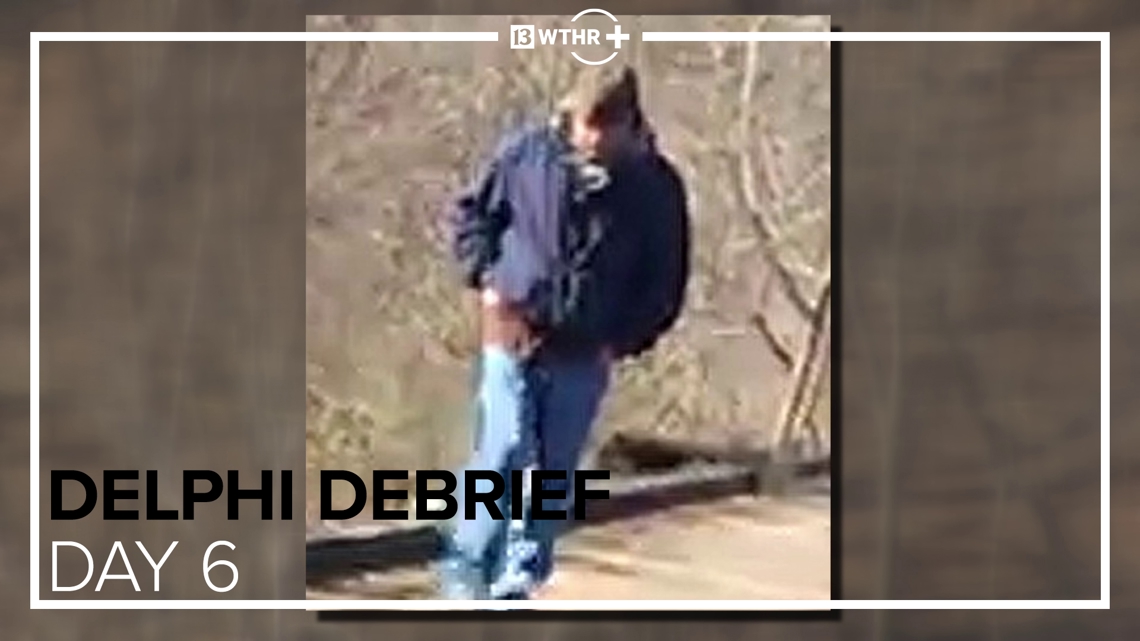I have bolded some of the testimony that is significant to me.
Witnesses are Shank, Dulin, Mullin, Liggett, Vido and Holeman in this link. See below.
By:
WRTV Staff
Posted 7:04 PM, Oct 24, 2024
DELPHI — Six witnesses took the stand on Thursday in Day 6 of the Delphi Murders Trial. The focus of the testimony was on the early stages as investigators started to build a case against Richard Allen.
Allen is accused of killing Abby Williams and Libby German in February 2017.
Misfiled report brings Allen to forefront
The first witness was Kathy Shank, a retired CPS worker and volunteer clerk who organized and evaluated approximately 14,000 tips received by law enforcement regarding the murders in Delphi.
Shank testified she started helping with the case in March 2017. The tips received by police filled five filing cabinets. In September 2020, she was asked to digitize that paperwork into a database. The digitization took two years.
Shank said investigators were moving buildings in 2022 when she found a box in a desk drawer that contained a lead sheet from February 16, 2017. It was labeled "Richard Allen Whiteman.” The tip indicated Allen had been on the trail on February 13, 2017. Shank testified the file had the word "CLEARED" written on it and said, "I don't know how that tip ended up in that box."
Shank took the tip to Tony Liggett, the lead investigator on the case.
The name of the file was changed from Richard Allen Whiteman to Richard Allen on September 21, 2022. Whiteman is the name of the street where Allen lived.
The file revealed that Allen self-reported he was on the trail the last day family members saw the girls. Shank said that was the only tip provided.
During cross-examination defense attorney Andrew Baldwin asked Shank, "Did you ever see a tip ⁶about a guy walking down the road, bloody like he slaughtered a pig?" Shank answered, "Not that I know of."
On redirect prosecuting attorney Stacey Diener asked Shank, "Would a roadblock tip be given to you?" Shank answered, "Didn't believe so."
One jury member asked Shank how she determined the name on the original Allen file was incorrect. She responded that she put it together based on her knowledge of the town and by looking at the previous narrative.
DNR officer is first to interview Allen
The second witness to testify Thursday was Department of Natural Resources Conservation Officer Daniel Dulin. At the time of the murders, Dulin was a lieutenant with the Indiana State Police and was involved with the command center. He followed up on leads received by police.
He showed the court a lead sheet and explained to the jury what information goes onto the sheet.
"Name, contact, narrative, identifying number, who provided to, what officer should do," Dulin instructed.
He said he picked up a lead sheet on February 18, 2017, and then called Richard Allen.
He asked to meet at Allen's house but said Allen preferred to meet in a grocery store parking lot. At that time, Dulin believed Allen's full name was "Richard Allen Whiteman."
Dulin testified Allen told him he was at the Monon High Bridge Trail on February 13, 2017 from 1:30 p.m. to 3:30 p.m. That was a change from the time he originally told police (1:00 p.m. to 3:00 p.m.)
Allen told Dulin he parked in the Farm Bureau parking lot and that he saw three girls on the trails. He said he parked at the old DCS office and walked toward the Monon High Bridge.
Dulin described his encounter with Allen as "brief, about five to ten minutes."
He did not videotape or take an audio recording of the conversation. He did ask for Allen's cell phone information including the 14 digit MEID (Mobile Equipment Identifier) number for the phone.
During questioning, Carroll County Prosecutor Nick McLeland asked Dulin, "When you spoke to Richard Allen, he told you he ran into three girls. Did he give you any information on what way the three girls were going?"
"Not that I know of," said Dulin.
Dulin did not follow up on the lead and returned it to the investigation center.
In September 2022, Dulin testified that he received a call from Former Delphi Police Chief Steve Mullin asking if had ever talked with Richard Allen.
Dulin said the "name didn't sound familiar to me, but I went back to the computer and typed in Richard Allen, notes came up about an interview in Feb(ruary) of 2017."
Dulin began a search on Allen in the DNR Point of Sale System. That system keeps track of information gathered from hunting and fishing licenses issued by the state of Indiana.
It displayed Allen's phone number as well as fishing licenses for Allen and his wife. The licenses include the height, weight, date of birth, and any changes made to the license holder's profile.
Mullin learned a change had been made to Allen's height in April 2017. It had been 5'4", but was switched to to 5'6" on his fishing license. Allen's weight also dropped by 15 pounds.
"I just thought it was uncommon," said Dulin.
At that point, Dulin was asked to point to Allen in the courtroom.
During cross-examination, defense attorney Rozzi asked how Allen had contacted law enforcement.
Dulin said, "I don't know how he contacted law enforcement. I just know he contacted law enforcement."
Regarding the change in the fishing license information, the defense asked if Dulin knew who entered the new height and weight information into the system.
Dulin responded, "No."
Rozzi said someone had to verify Allen's credit card information, and claimed there were previous references to Allen's height as 5'6" on his license.
Back to the scene
Dulin told the court he canvassed the crime scene numerous times throughout the investigation, including during the first week of the investigation. He was there on February 17, 2017.
He testified he found sticks and branches that caught his attention. He said they had blood on them and were piled up in a 5-foot area.
That was after the crime scene near the Monon High Bridge Trail had been released by authorities.
Dulin testified to calling the investigation center and asking them to go back to the scene to collect the sticks.
Unspent bullet
The defense asked if Dulin immediately noticed deer stands in the woods.
He responded, "Yes."
The defense questioned how uncommon it would be to find shell casings — both spent and unspent — in the woods.
Dulin said, "It wouldn't be to find from a rifle, but not a handgun."
The defense attorney continued, "Is it unusual to see hunters and fishermen have handguns when they go out?"
Dulin said, "No sir."
"Have you ever heard of Smith & Wesson?" questioned the attorney.
Dulin replied, "Yes."
One juror asked if Dulin could remember what Allen's hair was like when he first interviewed Allen in 2017. He said he could not.
Former Delphi Police Chief Steve Mullin too the stand to share more information from his October 2022 interview with Allen.
He stated Allen believed he was driving his Ford Focus when he went to the High Bridge Trail in 2017. Allen still owned the car in 2022. Allen told investigators he may have gone through the country to get to the trail that day, and if he went through the country that day, he would have passed a business called Hoosier Harvest. Hoosier Harvest has surveillance cameras at that location.
Allen stated he may have driven to the trail by traveling on route W 300 N.
Allen told police he was wearing blue jeans, a blue or black Carrhartt jacket, a skullcap, and military-style boots or tennis shoes.
When asked if he saw anyone on the trail, he said he saw three women — one older woman and two younger women. Investigators asked Allen if they could see his phone. He originally agreed, but changed his mind, got agitated, and then walked out of the interview.
Mullin said during the interview Allen was asked if the "Bridge Guy" was him, and Allen responded, "If the picture was the one that was taken on the girl's camera, there's no way it could be me."
Defense attorney Andrew Baldwin began the cross-examination of Mullin.
He claimed nowhere in the transcript of Allen's interview did it say Allen may have driven west on 300 N. Baldwin asked Mullin to find that portion in the transcript.
The court sat quietly waiting for Mullin to answer. After seven minutes, Mullin said, "That was my interpretation."
Mullin told the jury he found it strange that Allen mentioned the picture on the girl's phone.
Jurors had three questions — including "Did you investigate how many black Ford Focuses in Carroll County?"
Mullin responded, "No."
Another juror asked, "Did you look to see if his (Allen's) other car (a 2006 Ford 500) was on (the surveillance) video (at the Hoosier Harvest location)?"
Mullin responded, "Yes, wasn't there."
State witness #25
State witness number 25 was Tony Liggett. He is the Carroll County Sheriff.
He was questioned by prosecuting attorney Nicholas McLeland.
In September of 2022, he reviewed the tip found by Kathy Shank regarding Allen.
"It stuck out. I wasn't aware anyone had seen three girls on the trail that day. We believed it was 'Bridge Guy,'" said Liggett.
The jury was shown a video of "Bridge Guy" for a third time. This time the video that was shown had been enhanced to stabilize the man and to listen to what was being said. "Guys, down the hill."
Family members of the victims cried as the video was played.
Liggett learned Allen owned a 2016 Ford Focus and a 2006 Ford 500. He found that Allen worked at a CVS drugstore in Delphi. Liggett said he took pictures of Allen's car parked at that drugstore.
He found it interesting the vehicle backed into a parking spot at the CVS, observing the car backed into the DCS building lot as well.
Liggett shared Allen's timeline of events from February 13, 2017.
Allen told them he visited his mother that day, parked at the DCS lot, that he had been on the Monon High Bridge Trails from 12 p.m. until 1:30 p.m. that day. He said he passed three girls on the bridge, and said if he was going out of town he would normally drive his Ford Focus because it was more reliable than his other car.
Liggett believed Allen's comment about where he parked and his timeline was "wishy-washy."
Sheriff Liggett also testified to what was found in September 2022 when investigators executed a search warrant at Allen's house. Among the items found at the home were:
- a .40 caliber handgun
- some ammunition
- a single .40 caliber bullet in a keep-safe box in the master bedroom of the home
- a blue Carhartt jacket
- a gun registered to Allen was found in the nightstand beside Allen's bed
During cross-examination, defense attorney Baldwin questioned Liggett if he was running for sheriff.
Liggett responded, "Yes."
He asked how much of a pay raise Liggett would receive if he won.
Liggett responded, "$50,000."
Baldwin followed by asking if an arrest would increase his chances of being elected.
Liggett responded, "This had nothing to do with me. It had to do with two little girls."
Sheriff Liggett said he knew at some point that information regarding the crime scene had been leaked.
The defense contends no one saw Allen on surveillance video walking where cars were parked.
Liggett said he believed Allen acted alone in this case.
The defense asked, "Out of the hundreds of thousands of pieces of evidence, digital evidence, does any tie to Richard Allen?"
Liggett said, "No."
Two more witnesses were called on Thursday evening.
David Vido, an ISP detective, assisted in the search of Allen's home on October 13, 2022.
He took pictures of the home which also showed a Ford Focus outside.
Nearly 30 knives and at least four box cutters found inside the home were confiscated.
12 phones, including outdated phones, two pagers and two SD cards were also taken for evidence.
The defense asked Vido if it was uncommon for a hunter or fisherman to have knives.
Vido also said the jacket, car, and knives were all tested but nothing came back linking those items to the crime scene.
Underwear and socks missing from the scene were not found at Allen's house.
ISP Lt. Jerry Holeman testified regarding his supervision of the search. He sat in the car with Allen.
Holeman said when he asked if Allen wanted to fill out forms for any of the items found during the search, Allen said, "It doesn't matter. It's over."
Holeman said Allen said that twice, which he found interesting.
The defense also questioned how investigators handled the unspent bullet. They asked if photography could damage a bullet.
Holeman said, "Yes, depending on how it's handled.
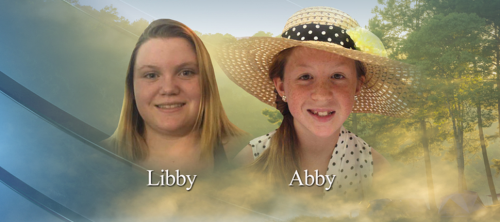
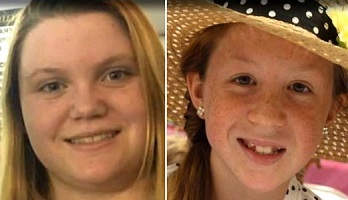
 en.wikipedia.org
en.wikipedia.org
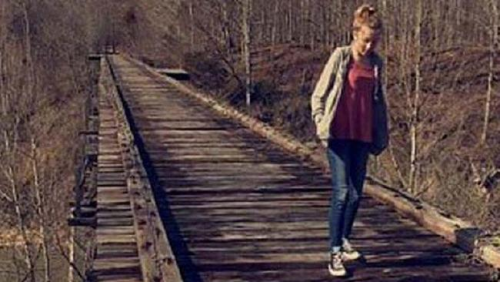
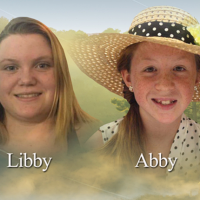
 www.crimewatchers.net
www.crimewatchers.net




 www.crimewatchers.net
www.crimewatchers.net

